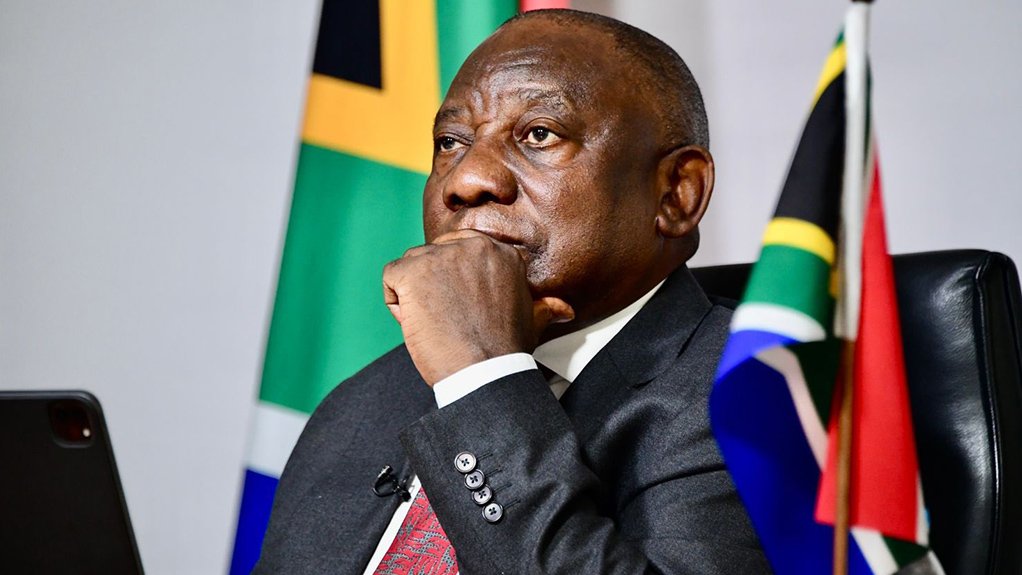President Cyril Ramaphosa said on Wednesday that the start of preferential trade will create great opportunities for growth and development for South Africa and many other African countries.
Speaking at the launch of preferential trade under the African Continental Free Trade Area (AfCFTA) Agreement in Durban, Ramaphosa noted that the modalities for trade in goods had moved faster than for services.
Therefore, he said, there was a need for more effort in building African champions in finance, retail and telecommunications, and in expanding tourism between African countries.
“That is the only way in which our economies will grow faster and sustainably,” said Ramaphosa.
The AfCFTA was initially set to launch in 2020 and was delayed for various reasons including Covid lockdowns.
Initially the agreement only applies to physical goods, including manufactured goods - such as farming equipment and processed foods - but is expected to expand to the services economy, tourism, e-commerce and logistics.
Preferential trade would not only benefit the country’s producers, but it would also see a huge increase in traffic through the ports, airports and land-based border posts, the President noted.
African trade ministers have been finalising rules of origin of what constitutes an African product. So far, 92% of the products that nations trade with each other have been finalised.
“The products made in Gauteng, Limpopo, North West, Free State, Mpumalanga and the Northern Cape will flow through these ports to markets beyond our borders. That is why, as the South African government, we are focused on implementing our Freight Logistics Roadmap to improve the efficiency and competitiveness of the country’s rail lines and ports,” Ramaphosa said.
Amid concern at Transnet’s dismally performing operations, he highlighted that government was working closely with industry to fix State rail and port operations in the immediate term and to ensure greater investment in this infrastructure into the future.
He said the levels of intra-African trade had been growing in recent years, but remained small by global standards.
Intra-Africa exports are reported to stand at around 16% of Africa’s total exports, compared with 55% in Asia, 49% in North America and 63% in the European Union.
Ramaphosa noted that as the world moved towards green industrialisation, Africa was well positioned to use South Africa’s critical minerals to leverage industrialisation on the continent.
The opportunities are vast in food and beverages, in cars and trucks, in clothing and textiles, he said. He added that South Africa had the capacity to produce more of its own pharmaceutical products and medical equipment.
Investment could flow to the production of chemicals, machinery and equipment, household goods and many, many more, he explained.
He highlighted that the continental market could also help the country promote agricultural development and food security.
“I thank the AfCFTA Council of Ministers and Minister Ebrahim Patel and his team, for their hard work negotiating the AfCFTA Agreement and its Protocols. This has made it possible for us to witness the start of preferential trading. Last but not least, I wish to express my appreciation to the exporters who have embraced this opportunity and have worked with us to be part of the first shipment of products under the African Continental Free Trade Area. From this quayside, and from ports, airports and border posts across the continent, a new era of growth and prosperity is being born. A great future awaits our continent and its people,” Ramaphosa stated.
Patel noted that African countries were mainly trading with the outside world through selling rocks and oil or raw materials and importing finished goods and capital goods.
“This has left us poor, it has left us vulnerable and left us dependent. Today represents the moment when we pivot away from that model to trading with neighbours, trading with food, manufactured products with services and digital products. It is a tectonic moment, Mr President, it shifts the landscape,” he said.
He said Africa was taking its destiny into its own hands with the start of trade under the AfCFTA Agreement, explaining that Africa represented 17% of the world’s population but accounted for only 3% of global gross domestic product and 1% of global output of manufactured products such as steel and automobiles.
EMAIL THIS ARTICLE SAVE THIS ARTICLE ARTICLE ENQUIRY
To subscribe email subscriptions@creamermedia.co.za or click here
To advertise email advertising@creamermedia.co.za or click here











